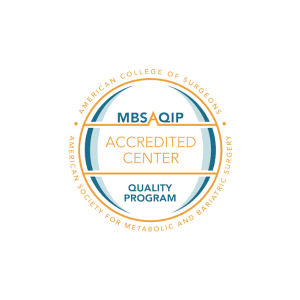Most insurance accepted. Call our office to confirm.
Bariatric Surgery New York, NY
Begin Your Path to Healthier Life with Weight Loss Surgery!
Weight Loss Surgery Seminar Today
New York’s World Class Program with over
20 Years of Top Experience in Weight Loss Innovation!
Our expertise is combining surgical technique with a world-leading understanding of obesity and metabolic disease.
We’re also the birthplace of the most innovative bariatric procedures.
Our goal is to synchronize the brain and the gut, resulting in reduced hunger, increased fullness, and the ability to live a more active life.


Featured on 60 minutes, The Today Show, Good Morning America and CBS Morning Show!

Over 20 years of changing lives
Meet The Bariatric Surgeons at Lenox Hill Bariatric Surgery Program

Dr. Mitchell Roslin
Chief of Bariatric Surgery
Dr. Mitchell Roslin, MD, FACS, FASMBS, has dedicated his professional career to the treatment of severe obesity. He is considered one of the best bariatric surgeons in New York. He has been performing weight loss surgery in New York since 1994 and laparoscopic obesity surgery since 2000. He also holds several patents in the emerging field of Pacing Technology for the treatment of obesity.

Dr. Filippo Filicori
General and Bariatric Surgery
Dr. Filippo Filicori MD, FACS, is a Board Certified Minimally Invasive Surgeon who specializes in Robotic, Laparoscopic and Endoscopic treatment of Obesity and Disorders of the Upper Gastrointestinal tract. He also specializes in the treatment of disorders of the Upper Gastrointestinal tract such as Reflux (GERD), Stomach Cancer, Achalasia, Esophageal Spastic Disorders and Gastroparesis.

Dr. Vikrom Dhar
General and Bariatric Surgery
Dr. Vikrom Dhar, MD is a board certified and fellowship trained Bariatric and Minimally Invasive surgeon. He specializes in bariatric surgery as well as gastroesophageal motility disorders, achalasia, gastroesophageal reflux disease, paraesophageal & hiatal hernias, abdominal wall & inguinal hernias, gallbladder disease, appendicitis, diverticulitis, and gastrointestinal cancers.
Why Choose Us
-
Origin and research for the development of SADI and SIPS in United States
-
Original Patents for endoscopic revision of Gastric Bypass and pacing technology for obesity
-
Featured on 60 minutes for surgical treatment of diabetes 2006
-
NBC National Special on Gastric Bypass 2002
-
Leading research center for the use of Artificial Intelligence for future surgery
-
Most major commercial plans are accepted

Losing weight is challenging and the reasons are poorly understood. The Bariatric Surgery program at Lenox Hill gives you access to a multidisciplinary team of experts who will help you choose the procedure that is best for you and give you the support you need to achieve your goals after surgery.
We offer the safest and most effective bariatric surgery in New York & Manhattan, NY, as well as revision bariatric surgery.
Register For Our Informational Seminar To Discover Which Procedure is Best For You!
Try Our BMI Calculator
| BMI | Classification | Health Risk |
|---|---|---|
| 18.5 – 24.9 | Healthy Weight | Minimal |
| 25 – 29.9 | Overweight | Increased |
| 30 – 39.9 | Obesity | High |
| 40 and higher | Severe Obesity | Very High |
What is BMI
BMI is the most commonly used measurement for obesity. The BMI approximates body mass using a mathematical ratio of weight and height.
A BMI of 30 or greater is regarded by most health agencies as the threshold for obesity. A BMI of 40 or greater generally qualifies as severe obesity. However, note that BMI measurements in body-builders and athletes may not be accurate determinants of obesity because the BMI does not distinguish between muscle and fat.
Federal Guidelines for Healthy Weight
-
Underweight. Your BMI is less than 18.5.
-
Ideal Weight for Your Height. Your BMI is between 18.5 and 24.9.
-
Overweight. Your BMI is between 25 and 29.9.
-
Obesity. Your BMI is 30 or greater.
Our Recent Blogs

Choosing the Right Bariatric Surgery for You

Risks of Overeating After Gastric Sleeve Surgery

Differences Between Mini Gastric Bypass Vs. Gastric Bypass
Let Us Know How We’re Doing!
FAQ About Bariatric Surgery in New York, NY
How long do I need to take off work for Bariatric Surgery?
There is no fixed timeframe for returning to work after bariatric surgery, but on average, most patients recover for two to three weeks before returning. A delay in returning to work is not necessarily due to pain, but rather, a lack of strength and the challenge of adapting to a new eating routine. Moreover, any medical complications that arise can also contribute to a delay in returning to work. To ensure sufficient recovery, we recommend planning to take three to four weeks off from your job. Individuals who work in more physically demanding occupations may require a longer healing period, such as four to six weeks. However, if feasible, arrangements can be made for an earlier return to light-duty tasks.
How much weight can I expect to lose?
The amount of weight a patient will lose depends on a wide range of variables such as genetics, the operation selected, portion sizes prior to surgery, portion sizes and food choices after surgery, exercise, and metabolic rate.
Patients who rely completely on the surgery and do not change their food choices and lifestyle behaviors will not have as favorable a result.
Which operation and what approach are best for me?
In medicine, there are no absolutes and each operation has advantages and disadvantages. It is important during your consultation that you and your doctor discuss your major health problems, concerns, and expectations. Your surgeon will outline a strategy that works best for you.